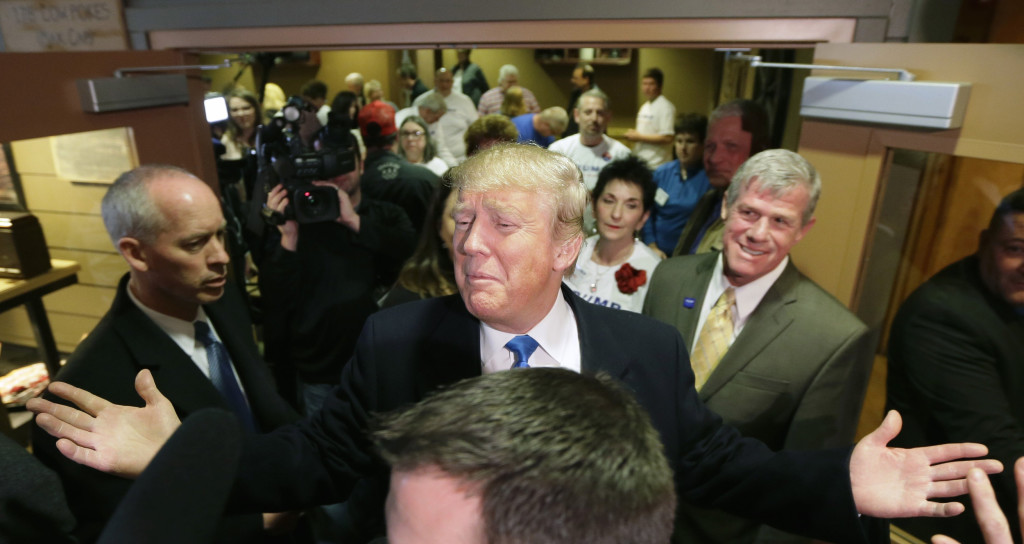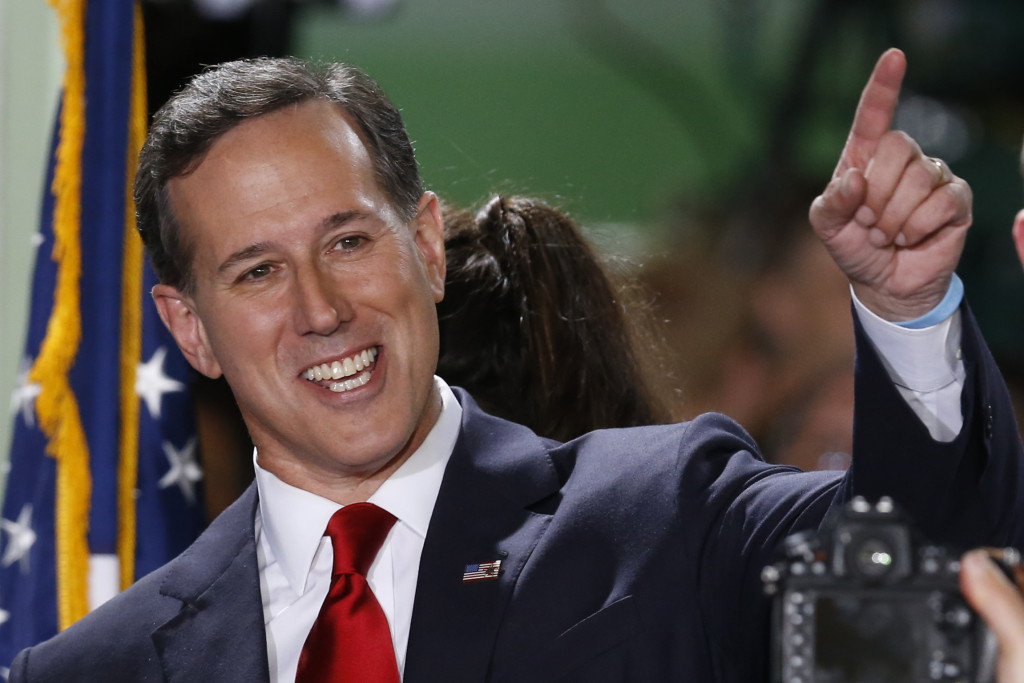As Iowa looms, GOP wonders: Does Donald Trump have fans, or voters?

It’s the No. 1 question headed into the primary season: Does Donald Trump merely have fans, or does the national front-runner for the Republican presidential nomination have voters who will mobilize come Iowa caucus day? The definitive answer won’t arrive until first-to-vote Iowa heads to the polls on Feb. 1, but interviews with dozens of voters, political operatives, party leaders and campaign volunteers in the past week painted a mixed picture of Trump’s efforts to make sure they do. Even some of the billionaire real-estate mogul’s most ardent backers wonder whether the political novice has the kind of ground game needed to ensure supporters — especially those new to taking part in a caucus — can navigate a process that isn’t as easy as simply casting a ballot. But many believe that even if Trump is falling short when it comes to building a get-out-the-vote effort, his supporters are so enthusiastic that it won’t much matter. “I have a feeling we’re going to actually do better than the polls are saying because there’s a movement,” Trump told supporters in suburban Des Moines last week, dismissing suggestions the thousands who pack his rallies won’t make it out on caucus night. “I don’t know, maybe they won’t,” he added. “But it seems crazy because some of those people were waiting on line for seven hours in the cold.” Questions about Trump’s turnout effort are magnified by his place alongside Texas Sen. Ted Cruz atop preference polls in Iowa. Republican leaders in the state largely agree that Cruz, popular with the state’s politically savvy evangelical Christians and social conservatives, has the most powerful get-out-the-vote operation among the GOP candidates for president — complete with an army of out-of-state volunteers housed in dormitories. Those same observers were mixed when describing what Trump has put together. “Normally, I at least know the county chairs and I see some organization,” said Gwen Ecklund, chairwoman of the Republican Party in Crawford County, who said Trump staffers weren’t doing as much as other campaigns. “Quite frankly, I haven’t seen quite as much of his organization at a county level as the other candidates,” said Warren County GOP chair Rick Halvorsen, who couldn’t recall having seen Trump representatives at the party’s monthly meetings. Don Kass, of the Plymouth County GOP, said he’d been fielding calls from other campaign officials inquiring about speaking arrangements on caucus night, but has yet to hear from Trump’s team. Dozens of people interviewed by The Associated Press in recent weeks at Trump rallies across the state say that while his team is active online, they have had relatively little personal contact from the campaign. Many said they had yet to receive a phone call or a campaign mailing. None reported a knock on the door. And on a recent Friday evening, Trump’s main campaign office in suburban Des Moines was shuttered by 7 p.m. Three miles up the road, Cruz’s headquarters hummed with the sounds of more than 30 volunteers placing calls at tables festively decorated with potted poinsettias. “That’s a precarious model,” Paul Tewes, who organized then-Sen. Barack Obama‘s successful 2008 campaign in Iowa, said of a campaign that relies on emails and phone calls alone. The issue, Tewes explained, is that Iowa doesn’t make its presidential choice with a primary. Ballots aren’t cast at polling stations open from dawn to dusk. Instead, a caucus requires voters to show up at a designated place at a designated hour, at night in winter, to listen to speeches and eventually express support for their favored candidate in a byzantine voting process. “It’s a much higher hurdle than voting in a (traditional) election,” Tewes said. Successful campaigns need to be in constant contact with voters — his aim was once every two weeks — to get them invested enough in a campaign to make it to caucus night, he said. Yet Trump’s campaign has, so far, defied all those who doubt it. His team in Iowa is led by Chuck Laudner, a highly respected political operative who ran 2012 caucus winner Rick Santorum‘s Iowa operation. They have diligently built a voter database using the information entered when fans sign up online to attend his events, where Trump staffers canvass the crowd seeking commitments and answering questions. Tana Goertz, Donald Trump’s peppy Iowa campaign co-chairman, boils down the caucus process to a few easy steps. The last one? “If you can write T-R-U-M-P, you’ve just done it!” she told a crowd outside Des Moines this week. “I believe that the Trump campaign is one of the best-staffed organizations in the state,” said Jamie Johnson, a GOP strategist who also worked for Santorum in 2012 and was senior director of Rick Perry‘s campaign before the former Texas governor dropped out of the race. “Anyone that thinks Donald Trump is just winging it in Iowa is dead wrong.” But they’re not eager to show off. Trump’s campaign repeatedly turned down requests from AP to tag along with volunteers or speak with Iowa staffers. Some volunteers said they had been barred from talking to the media by the campaign. Laudner declined to discuss the campaign’s efforts at length, but said at a pre-Christmas rally, “We have counties where we have more committed caucus-goers than total turnout four years ago.” Trump’s team appears acutely aware of the pitfalls of setting the bar too high, even as the candidate brags about how well he’s doing in the polls and all his team is doing. “One of the great misconceptions is that we don’t have that much ground game. Because they don’t know,” Trump told AP in a December interview, boasting of “amazing people” including “hundreds and hundreds” of volunteers in the state. Said Trump campaign manager Corey Lewandowski, “The expectation for Ted Cruz to win Iowa right now is exceptionally high … People have underestimated Donald Trump from the day we announced.” Trump’s campaign is holding unadvertised caucus training sessions, including one last week at a Pizza Ranch restaurant in outside
Social conservatives a la Rick Santorum, Mike Huckabee stand to win Alabama in 2016

While top-tier candidates Marco Rubio, Jeb Bush and Scott Walker have never before faced the Alabama electorate, it’s safe to say that more socially conservative alternatives to the frontrunners stand to do well here in the 2016 Republican presidential primary, if history is any indication. In 2012 it was Rick Santorum who won the hearts and minds of Alabama’s GOP primary voters, capturing fully 35 of the state’s 67 counties on his way to a 6-point victory over runners-up Newt Gingrich and Mitt Romney, who each took 29 percent of the vote to Santorum’s 35. Santorum has yet to make up his mind another bid for the White House. If he opts not to, the natural beneficiaries would likely be former Arkansas Gov. Mike Huckabee and retired neurosurgeon Ben Carson, both darlings of the conservative radio and press outlets that are often decisive in Deep South presidential politics. The relatively low totals Alabama voters gave Romney, a heavy favorite to win the nomination by the state’s late-ish March 13 primary, represented a rejection of the “establishment” candidate, a mantle especially likely to fall to Walker or Bush. Despite a controversial open primary system throughout the state, 80 percent of Alabama primary voters in 2012 indicated they were supportive of the Tea Party, a trait strongly tied to success for Santorum’s campaign that year. The former Pennsylvania Senator also took home a plurality of 2012 convention delegates in Kansas, North Dakota, Tennessee, Oklahoma and Mississippi. Kentucky Sen. Rand Paul‘s campaign has been careful to keep his father Ron Paul at some distance, likely a wise choice here in Alabama: Congressman Paul pulled in just 5 percent of ballots cast in the state in 2012, around half his national average among all primary states. Three quarters of 2012 state primary voters also identified as “white evangelical or white born-again Christians,” a demographic in which strongly pro-life and pro-gun candidates like Huckabee and Santorum excel. Should Santorum announce he would be considered a frontrunner here, though the dynamics of who would win which slice of an ever-shifting GOP body politic is still very much an open question.


